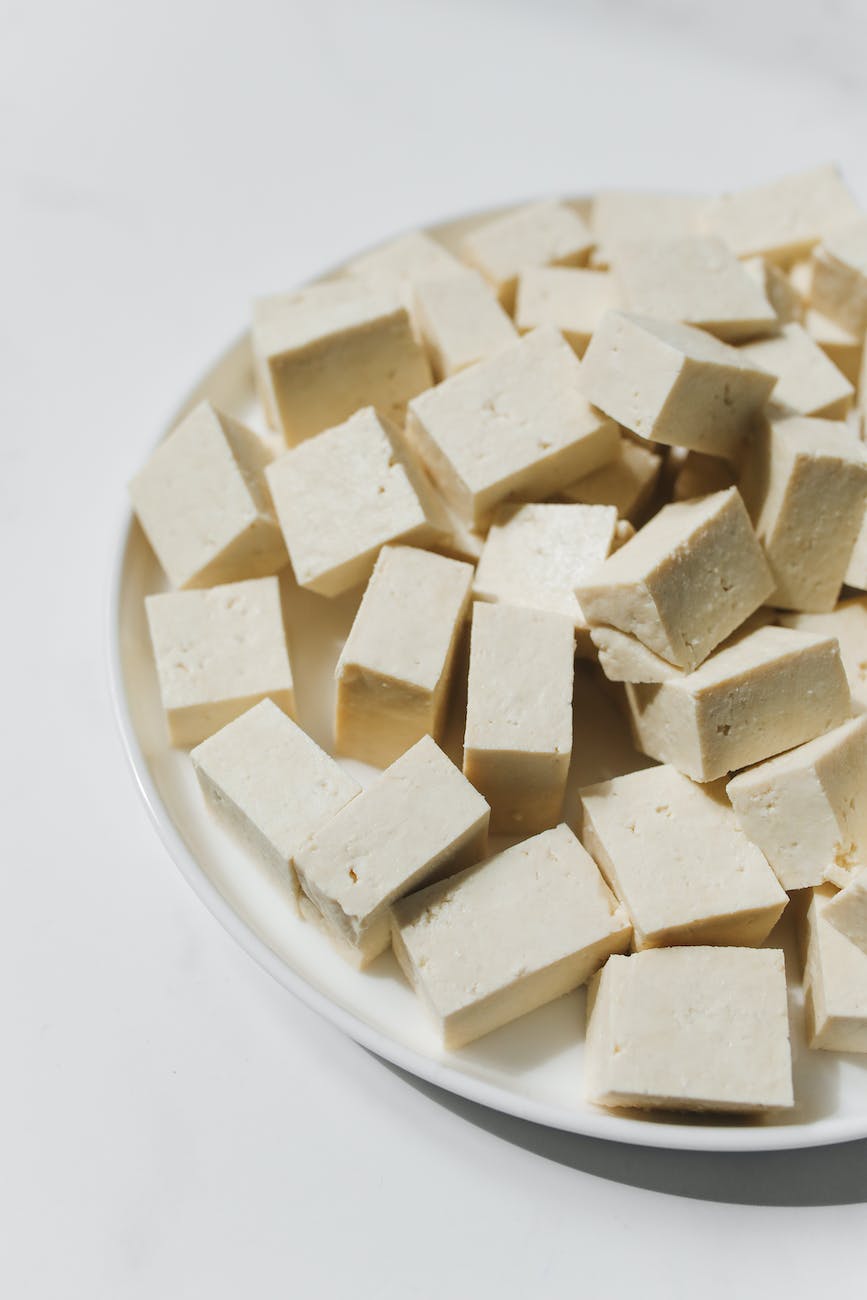
Embarking on a keto journey can be an exciting opportunity to experiment with diverse flavors, textures, and, most importantly, nutritionally balanced meals. Perhaps you’re also driven to adopt a more sustainable dietary choice, wanting to minimize your carbon footprint, and keen to explore the vast universe of plant-based proteins. Tofu, the culinary chameleon, has got you covered!🥦🍲🌾
Originating from soybeans, tofu is a remarkable source of protein and is low in carbs, which aligns perfectly with the keto lifestyle. It is also a significant source of iron and calcium and low in saturated fat. With its distinct ability to absorb flavors and provide a unique texture, tofu can transform your keto meals into an extraordinary dining experience.
Moreover, meal prepping with tofu is not only a time-saving strategy for busy weekdays but also ensures you’re consistently consuming nutrient-dense meals that fit your dietary preferences.
Now, let’s explore some delicious, keto-friendly tofu meal prep ideas!
🥢 Keto Tofu Stir-fry: Picture this – succulent cubes of tofu, stir-fried with a medley of low-carb veggies such as bell peppers, zucchini, and mushrooms. All these components bathe in a rich, savory sauce, creating an aromatic harmony of flavors. For an added nutritional punch and texture, sprinkle sesame seeds over the stir-fry before serving. You can prepare your tofu and cut your vegetables in advance, reducing the stir-fry time to merely minutes when you’re ready to feast.
🍝 Tofu Zoodle Alfredo: Reimagining comfort food for a keto diet is simpler than you’d think. Take zoodles (zucchini noodles) as a base, top them with a creamy Alfredo sauce packed with diced tofu, and you’ve got a plate of indulgent comfort that’s delightfully keto-friendly. The Alfredo sauce can be made richer with a generous helping of Parmesan cheese, providing that extra creaminess and flavor. You can spiralize your zoodles and prepare your tofu-loaded Alfredo sauce ahead of time, ensuring a quick assembly when hunger calls.
🥗 Greek Tofu Salad: Imagine a classic Greek salad, but with an exciting twist. Swap out feta for marinated tofu cubes to maintain the keto-friendly profile. Accompany it with olives, cucumber, tomatoes, and a dressing made from a blend of olive oil and vinegar. This results in a Mediterranean-style meal that’s bursting with vibrant flavors and colors, all while staying low on carbs. The tofu can be marinated and the vegetables chopped in advance for a quick salad assembly.
🌮 Keto Tofu Tacos: Taco Tuesdays just got a keto makeover. Swap out the traditional taco shells for lettuce wraps and replace the standard chicken filling with seasoned, crumbled tofu. The lettuce provides a refreshing crunch, while the tofu offers a satisfying protein source. Add low-carb veggies, cheese, and a dollop of sour cream for a complete and satisfying meal. You can prepare the crumbled tofu in advance, so all that’s left is heating and assembling your tacos at dinner time.
🍛 Tofu and Broccoli Stir-fry with Cauliflower Rice: Enjoy a classic stir-fry with a keto-friendly twist. Stir-fry tofu and broccoli in a savoury sauce of your choice, and serve it with cauliflower rice for a low-carb, high-protein meal. The sauce can range from soy-based to a fiery Szechuan style, depending on your taste. You can pre-cook the tofu and broccoli stir-fry and cauliflower rice, ensuring a quick heat-and-eat scenario for those busy weeknights.
Incorporating tofu into your meals is a strategic way to ensure you’re meeting your daily protein requirements, which are paramount when following a keto diet. Remember, tofu is also a valuable source of calcium and iron, which are essential for bone health and blood formation.
Opting for tofu over chicken significantly aids in lowering your carbon footprint. The production of tofu demands considerably fewer resources, such as land, water, and energy, compared to chicken. Consequently, it is a more sustainable dietary choice.
Embrace the joy of culinary experimentation! Adapt these ideas to your preference, mix and match flavors, play with different ingredients, and enjoy the process. After you’ve prepared your sumptuous tofu creation, don’t forget to share it with us! 📸 Tag your results with #MasalaMonk and @Masala.Monk on Instagram or Pinterest. We’re eager to witness your keto culinary adventures!
Bookmark this post for future meal prep inspiration and come back to share your experiences with keto meal prepping. Your journey could inspire others and contribute to a community dedicated to healthier, more sustainable eating practices. 💕














